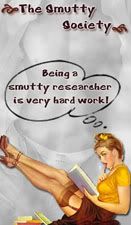"North Country" - quickie movie review
This melodrama for the modern age is based on the true story of the first successful sexual harassment case in America. Niki Caro's (WHALE RIDER) inspirational tale traces one woman's determined struggle for independence and equality in a male-dominated environment--a struggle that set a precedent for improved working conditions for women across the country.
Charlize Theron plays Josey Aimes, a young mother of two who has just left her abusive husband and returned home to live with her parents (Sissy Spacek and Richard Jenkins). Reconnecting with her old friend Glory (Frances McDormand), she learns of a well-paid job at the mines that would allow her a modicum of independence for the first time in her life.
But Josey soon finds out about the drawbacks to the job, as the men mount a war of escalating cruelty against the women, who are expected to "take it like a man." Dildos in lunch boxes, obscene graffiti, and a harrowing episode in a Porta-Potty are just some of the indignities the women have to suffer in silence.
Finally, Josey is pushed too far and decides to fight back, but she finds herself hard-pressed to find allies willing to sacrifice their bread and butter. Vilified by her former friends, increasingly abused by male colleagues, and estranged from her son and also from Glory, Josey nonetheless decides to sue the company. She is aided by exiled New York lawyer and former local sports star Bill White (Woody Harrelson). As in all successful melodrama, good and evil are clearly marked, with the powerful corporation and the male workers the unmitigated bad guys. However, this makes Josey's courage and strength, as well as the scope of what she accomplished, stand out in even starker contrast.
At the beginning of the film, Josie leaves her abusive husband and moved back with her parents in northern Minnesota. She starts out washing hair at a beauty salon but wants to get out of from under her parents and find her own place for her and her 2 kids. When her friend Glory talks about the money to be made in the mines, at first she's hesitant, but then decides she wants her independence badly enough to at least try.
Right from the start, when she takes a physical exam, the sexist comments start. Part of the problem is that Josie has a reputation, and she's a pretty woman, so that doesn't help when she gets the job in the mines. The men are resentful and feel that these women are essentially coming in and taking these jobs away from hard-working men, when these women are just as in need of a good job to support their own families. Josie's own parents tend to feel the same, and Josie's father works in the same mine as she does, but he believes she should go back to her husband like a good little woman and her mother pretty much agrees.
But Josie is stubborn, and likes that she can now afford her own house and is able to take her kids out to a nice restaurant. And while the comments and gestures are disgusting, she still doesn't leave. But then some of the men who are against women working in the mines start getting even more aggressive, pushing and pushing and even humiliating the women. Josie decides to take it up with the owner, and takes the day off work to meet with him. Only the results are not what she expects, and she realizes that it really is a boys' club.
Eventually what happens in the mines convinces Josie to sue the company. Everyone from her family to her co-workers to the attorney she approaches to take the case tries to talk her out of it. But Josie's made up her mind. She is not going to put up with the harassment, the disgusting behavior, any longer. She was going to fight.
My thoughts:
This movie was hard to watch in some respects, because of where I grew up. Yes, that's where I spent the first 19 years of my life, and my parents still live in the area, so I can honestly say that the mentality was/is alive and well there.
The most moving part of the film, at least for me, is when her father, who's pretty much ignored her and sneered at her for even working in the mines, gets up at a union meeting and talks about what it's like to have this kind of thing happening to his own daughter. For him, he understood on a personal level what these women had to put up with, what his daughter had been subject to, and he calls the other miners on it, these men who were supposed to be his friends. I believe I heard that scene was filmed with the audience filled with real-life miners, not just actors. So emotions were running high.
This film left a lot to be desired as far as reaching out to the heart of viewers. It felt distant, like something was missing. True, people on the Iron Range can be stoic people, but there should have been something more there. It was like more attention was placed on scenery instead of the characters. Every few minutes the camera would jump to a shot of the harsh winter, or the bleak gray and grime of the mines. Other than a few shots, I didn't recognize the town as being where I grew up, and I think that was intentional.
Rating: ***1/2 out of *****
Labels: movies







































Oh, thank you Stacy! I've been wanting to watch this movie for simply ages, although it looks like the gritty kind of movie that I would need to watch when I'm feeling perky!
byBTW, have you seen Whale Rider? There are some similar themes running through it...